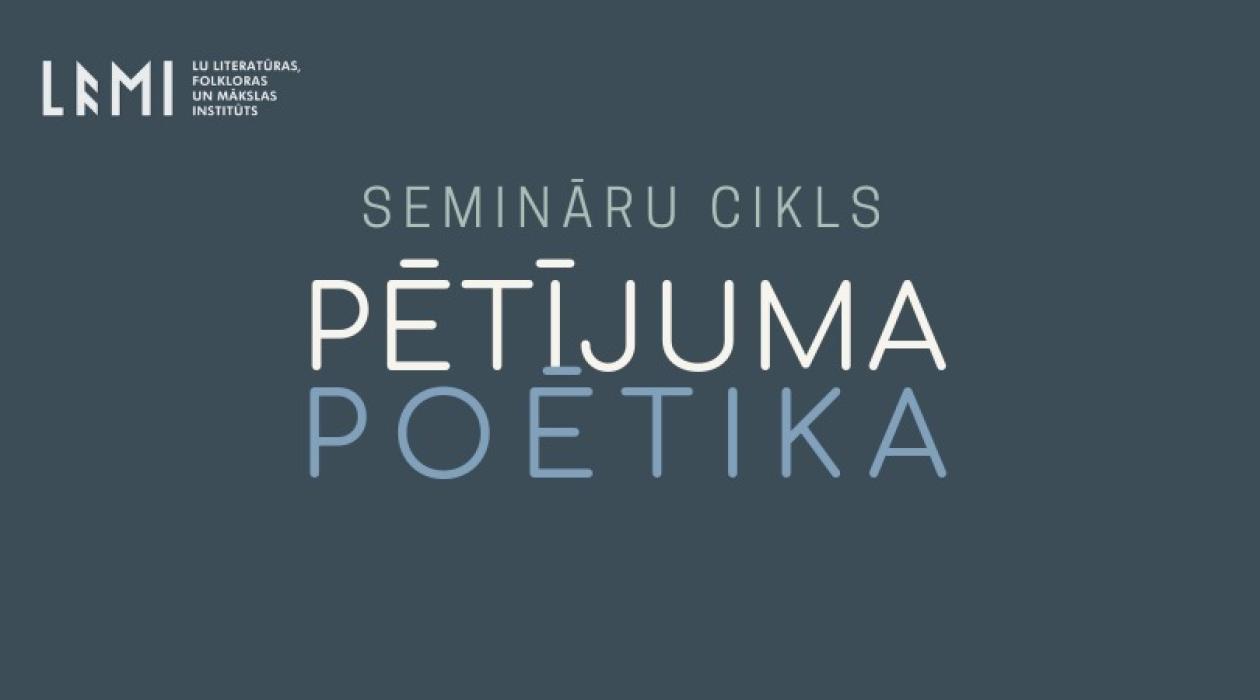Poetics of Research. Presentations by Dace Bula and Inguna Daukste-Silasproģe

In connection with the election for the position of Leading Researcher in the Humanities and Arts at UL ILFA, a Poetics of Research seminar will be held on Wednesday, March 6, at 11:00 a.m. in the Reading Room of the Latvian Folklore Archives (5th floor of the National Library of Latvia).
The speakers will be Dace Bula (at 11:00) and Inguna Daukste-Silasproģe (at 13:00).
Presentation abstracts
Dace Bula. “Sea Cows, Regīna Ezera, and a Story of Loss”
In the summer of 2012, news spread around the world that Lonesome George, the last Pinta Island tortoise of the Galápagos subspecies, had died at the age of one hundred. These tortoises had been hunted, and their population severely affected by the introduction of wild goats on the island. George’s taxidermy mount is now displayed at the Galápagos National Park on Santa Cruz Island. A related relic—the skeleton of the extinct Steller’s sea cow—is preserved at the Zoological Museum in St. Petersburg. Regīna Ezera mentions this in the opening of her story “Song of the Last Sea Cow.” The story was inspired by the shocking news of the rapid extinction of marine mammals. Yet its poetics—belonging more to prose poetry than conventional fiction—draw upon parallels between the history of sea cow discovery, taxonomy, and the adventures of Odysseus.
The human–nature relationship in Ezera’s works has left a lasting imprint on Latvian culture—alongside the canonized Beneath the Surface, the film-famous The Well, and the feminist reading of female subjectivity across her oeuvre. Through the various modes of connection Ezera builds between humans and animals runs an ethical thread: from a contemporary ecological perspective, the crucial theme of interspecies empathy and human responsibility—for the preservation of life and species, for the tamed and the dependent others.
Inguna Daukste-Silasproģe. “‘Now Is the Hour’: The Restoration of Latvian Independence and Exile Literature”
The winds of the Third Awakening in the late 1980s and the restoration of Latvia’s independence in 1991 marked a symbolic breaking of borders and barriers. More than forty years had passed since the mass exodus of refugees in 1944–45. Everything done in the public and cultural life of the exile communities—through political action and creative work—had been carried out in the hope that Latvia would one day regain its lost independence and freedom.
When independence was restored, there was no longer a formal reason to speak of exile, and the very concept of exile began to transform. The former exile community was deconstructed. What historian Andrejs Plakans called “the reluctant exiles” ceased to exist. Yet what, then, should we call the branch of Latvian literature created outside Latvia in the 1990s and beyond?
The phenomenon of post-exile (Nachexil / Post-Exile) can be approached through a new literary-theoretical framework emerging in German literary studies, one that is also relevant to the Baltic region. Questions of identity and belonging lie at its core, offering ways to examine these issues from linguistic, geographical, and historical perspectives. Post-exile simultaneously marks the end of exile and the possibility of return to the once-abandoned homeland—yet it also implies the persistence of exile as experience and memory. Exile stories remain an inseparable part of each individual’s life even in changed circumstances (Bannach; Sarkowsky).
The presentation focuses on the relationship between exile and Latvian cultural space, on the place of exile literature within the story of Latvian literature, on writers’ quests for belonging, narratives of return or remaining abroad, and the roles of memory, recollection, and research perspective.
(The title quotes Teodors Zeltiņš’s novel “Now Is the Hour”* (1975), which imaginatively depicts a moment when Latvians are invited to return home by ship from New York as Latvia regains its independence. The paper is based on Bannach, Bettina; Sarkowsky, Katja (eds.).* Nachexil / Post-Exile. Berlin, Boston: Walter de Gruyter, 2020.*)